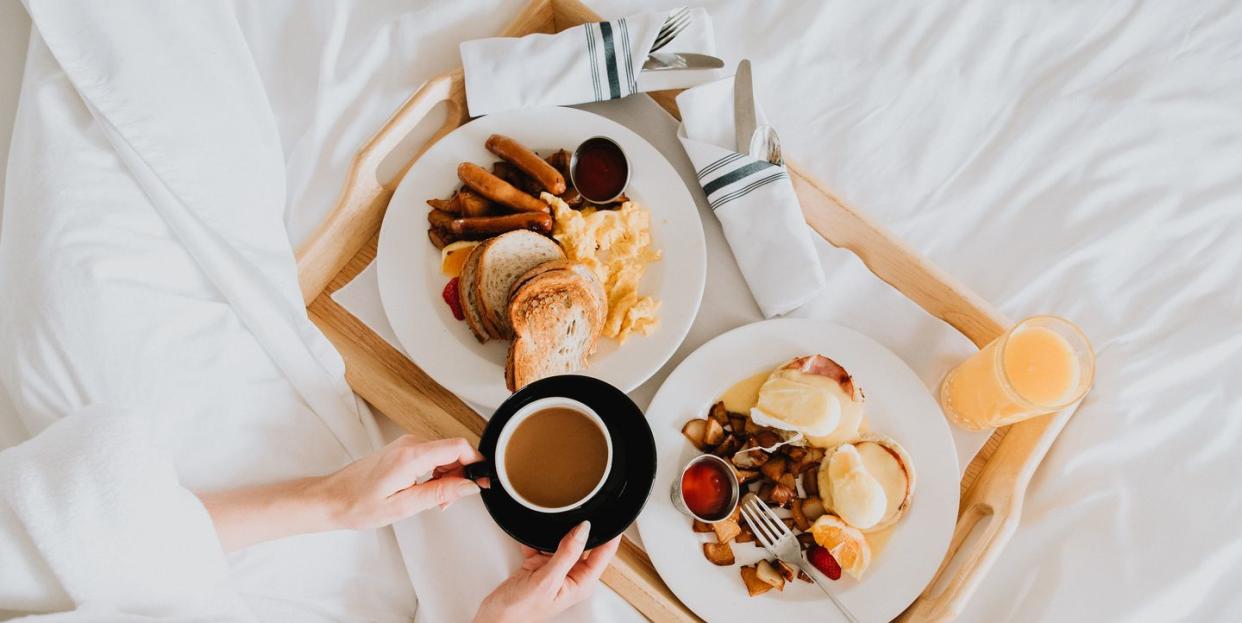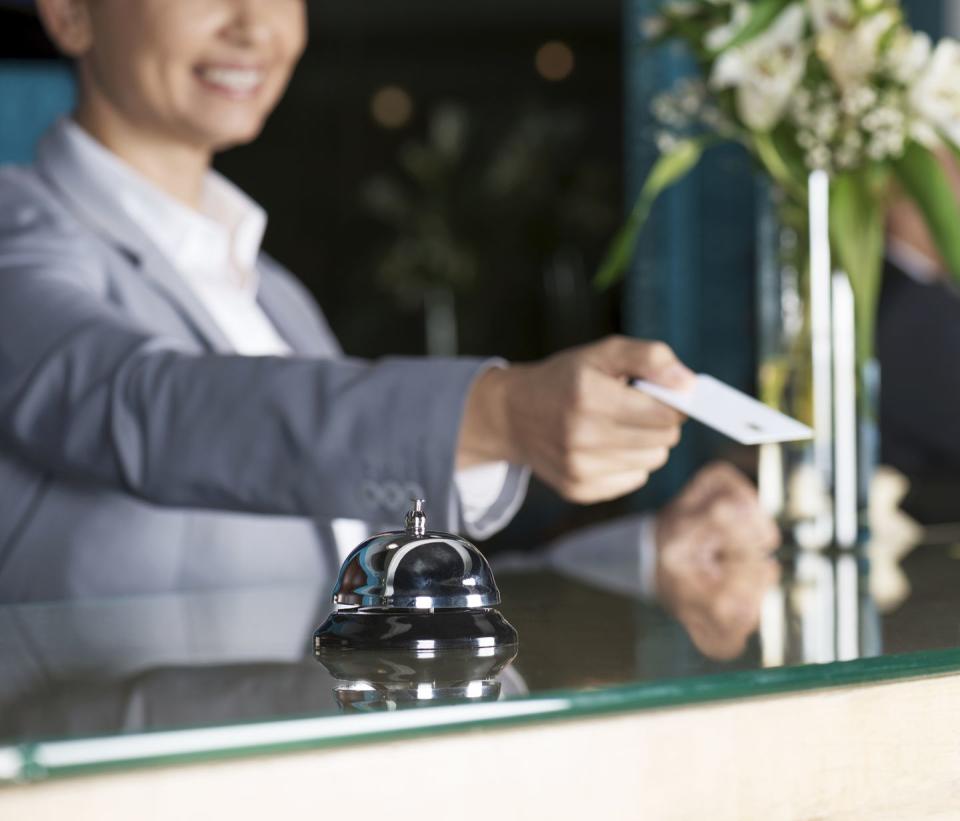Infectious Disease Experts Answer: Is It Safe to Stay at a Hotel Right Now?

Whether you made summer travel plans a while back or just have the urge to get out and explore, it’s only natural to wonder if it’s OK. After all, COVID-19 is still circulating in many areas, but plenty of people are starting to inch back toward normal life—or something like that.
Making travel plans raises a huge question: Is it safe to stay at a hotel right now? The answer isn’t as cut and dry as you’d hope.
“Most things right now come down to what level of risk you are comfortable with,” says Amesh A. Adalja, senior scholar at the Johns Hopkins Center for Health Security. “Nothing is entirely safe.” Still, he says, it’s understandable that you want to live your life.
William Schaffner, M.D., an infectious disease specialist and professor at the Vanderbilt University School of Medicine, agrees. “‘Safe’ implies complete safety, but staying at a hotel should be a low-risk activity if it’s approached properly,” he says.
Here’s what you need to know, plus how to stay as safe as possible if you do decide to make the trip:
What are your biggest risks when you stay at a hotel?
Just a brief recap: The Centers for Disease Control and Prevention (CDC) currently lists person-to-person contact as the main way COVID-19 spreads. When people are within six feet of each other, the virus can spread between infected respiratory droplets produced when an infected person coughs, sneezes, or talks, the CDC says. These droplets can then land in the mouths or noses of people who are nearby or possibly be inhaled into the lungs.
The CDC also points out that it “may be possible” to contract COVID-19 from touching an infected surface and then touching your mouth, nose, or possibly your eyes, but the organization stresses that this is “not thought to be the main way the virus spreads.”
With that in mind, Dr. Adalja says that person-to-person contact is your biggest risk at a hotel. Think: being in places where other guests are gathered, like at the check-in desk, by the pool, or at the hotel bar.

So, what can you do to stay safe at a hotel?
For starters, know that most hotel chains want to keep you safe too. “Most are working vigorously to try to make their businesses safer and to make them more conducive to social distancing,” Dr. Adalja says. Many hotel chains have set measures in place to try to protect customers in a way that’s sustainable, he adds.
Suzanne Willard, Ph.D., clinical professor and associate dean for global health at Rutgers School of Nursing, recommends contacting the hotel in advance to see what they're doing to keep you safe. The hotel “needs to be cleaned according to CDC guidelines and they need to have a statement about social distancing,” she says.
“Until there is a vaccine, people are taking risks,” Willard says. She points out that there is currently no data on hotels and COVID-19 spread because they've been empty, but that “we should look at hotels as a form of congregate housing.”
Now, in a perfect world, everyone you come into contact with at a hotel would be wearing a face mask, Dr. Schaffner says. Once you get to your room, Dr. Schaffner says it’s not a bad idea to wipe down commonly-touched surfaces like door handles, toilet handles, faucets, and the remote with bleach wipes, if you have them.
From there, try to limit how much you're interacting with other people. “In general, you might want to avoid places where people are congregating,” Dr. Adalja says.
It’s unlikely that the breakfast buffet is still going to be a thing at most hotels but, if there is one, Dr. Adalja recommends steering clear. Room service is the best option for food, if you can afford it, Dr. Schaffner says. But, he says, if you want to eat in the hotel’s dining area, just make sure the tables are spaced at least six feet apart and that tables are being disinfected between customers. Still, he says, “room service is best.”
It’s understandable that you might be nervous about passing other people in the hallway, but Dr. Adalja says you’re generally OK to do so. “It’s more of a concern if someone coughs on you,” he says.
Overall, Dr. Adalja recommends doing your best to follow the basics of preventing the spread of COVID-19: Wash your hands regularly, wear a mask in public places, and practice social distancing. If you do all of that, he says, you should be OK.
Support from readers like you helps us do our best work. Go here to subscribe to Prevention and get 12 FREE gifts. And sign up for our FREE newsletter here for daily health, nutrition, and fitness advice.
You Might Also Like

